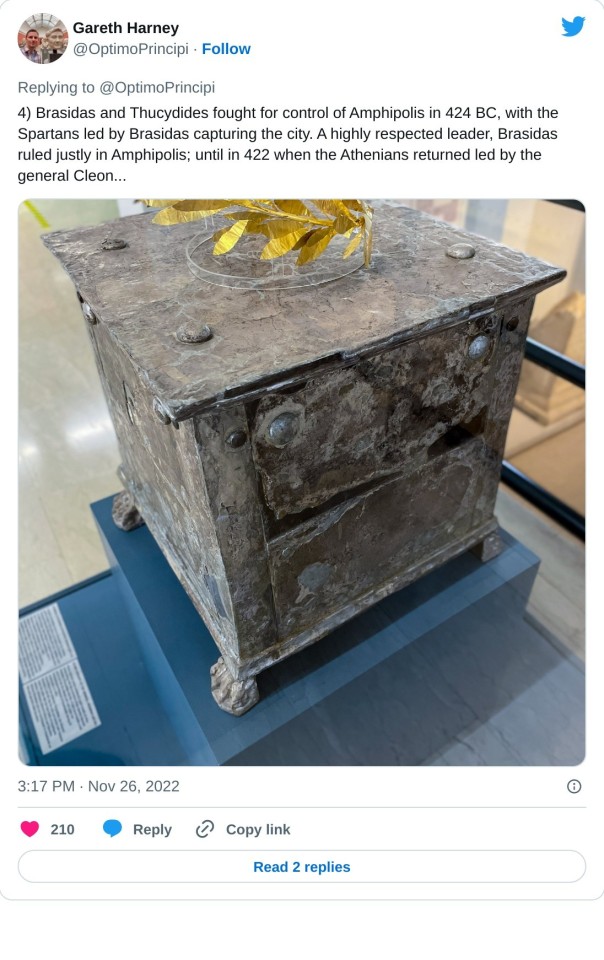#athenians
Text

Les Héros de Marathon (The Heroes of Marathon) by Georges Rochegrosse
Greek troops rushing forward at the Battle of Marathon 490 BC
#battle of marathon#athens#plataea#art#georges rochegrosse#history#athenians#achaemenid empire#persian#invasion#antiquity#ancient greece#greece#ancient greek#ancient#greek#europe#european#heroes#troops#soldiers#battle#war#marathon#art nouveau
179 notes
·
View notes
Text
Cabin 6 head can on(i have no idea if it fits but lets go along with this):
In BoTL they described cabin 6 to have an stone owl and gave a sliver glow or something Iike that and im thinking its a gift from their mom and that Athena grants all her kids a gift (something small like Annabeth's cap).
I was wondering if the stone owl actually had a purposesor if it was just decor. I like to think Athena was better in the PJO series and im gonna ignore the HoO series for this headcanon where I believe Athena actually cares for her children but she's not good when it comes to feelings. Hence she shows her care by keeping them safe(ie guiding 'beth to Thalia and Luke when she was a runaway) and giving then weapons and little trinkets to eveyone of them at some point in their life.
When Athena grants the gift to her children they have access to the stone owl that comes to life and becomes a helper of sorts. It does tasks like giving lighting round quizzes or fun things like getting specific scrolls. The owl chages it's species and name depending on who calls it (so it's like a pet for everyone but they can only use it one at a time).
Eg. Annabeth a snowy owl she named Glacia (glay-sha) and Malcolm a Eurasian horned owl named Oak
The Athenians need to keep the owl at prim condition by giving it praises and grooming sessions so the silver light never goes out. The light acts as a spider-repellent. When the owl senses the light fading, it always takes flies to the head counsellor to solve the issue.
They can't speak to it like how Peecy speaks to horses but they can understand the intentions if the bird.
#Malcom#annabeth chase#percy jackson headcanon#cabin 6#athena#owls#athenians#athena cabin#lyf headcanons#i should write about this#imagine annabeth cudling an owl like no problem but a owl with sharp beak and even more fatal talons just perched on her shoulder#has this been done yet#athena kids are a badass fyi#:)
41 notes
·
View notes
Note
Wait as an Athenian I wanna know what stereotypes other areas towns and cities have of us! I already know what some arw gonna be (πρωτευουσιανοι and all that) but I'm curious if certain areas anything specific for us!
ahahahha okaay! Let the salt commence! These are stereotypes (and we all know what that means) so please, Athenians I speak with, don't feast on my carcass, please and thank you xD I obviously know dozens and dozens of Athenians and have family there, so I am drawing from the experience of many similar occasions and what other non-Athenians have told me. I will speak about the urban center.
Let me start with the positives because they are not too many 😂😂😂😂😂 (okay there are many, I just feel I don't need to explain them that much!)
Obviously Athens is full of creative and strong people, people who have decided to get by in life no matter what, and I admire them for that quality. Fast-paced environments and chaos is not as big a challenge to them. I mentioned that the North is very resilient as well. The truth is we are all resilient, just in different ways, depending on our environment and I love seeing these differences.
Athens has all sorts of people so you can find all the good qualities there. Athens can be hard to withstand for many different reasons - especially if you struggle with a physical and/or mental illness, and/or poverty - but Athenians rise through the hardships. Whatever new thing comes from Exoteriko, they grab it by the horns and bend it to Greek standards.
Ok, onto the bad ones! The grace period is over 😈
Athenians are out of touch the way US is out of touch with the rest of the world. Like, there's just "them and the countryside (Επαρχία)" although the Επαρχία literally includes Thessaloniki with 1 mil people. They also treat Thessaloniki, one of the major Balkan urban centers, as if it's a primitive village that one doesn't even need to visit just because it's not as big as Athens. The whole country goes to Athens once in their life but Athenians don't feel like they have to go somewhere. Some are... I'd say... shocked when they find innovation and excellence up here, let's stay at that :P
Two Athenians I've spoken with so far didn't know what a Poliouchos is... I mean Athens has a Poliouchos as well but they might not notice that other towns have a Saint just like they do and each town has its own Saint?
Sometimes they take this sad face "oh... you don't have THAT in the countryside, don't you?" and it feels offensive if we have it and offensive if we don't xD Or "oh! You have that, too, like in Athens?" Like..... yes dude, we also have running water and cars, thank you very much. Sometimes they might ask you "how did you expect me to know??" Like bruuuh it's your freaking country, and you should be aware of things outside of Athens!
Or they assume that because there's a certain microclimate in Athens, that this climate is on the whole of Greece. And they tell tourists weather stuff about the whole country regarding temperatures and snow that only apply to Athens and a few nearby areas.
Some 25+ year-old Athenians think that being an Athenian gives you status in the eyes of other Greek areas - no it absolutely doesn't 😂 - and they might be ashamed if they show some culture/mannerisms/words from their village in front of other Athenians. Or if a non-Athenian does something that's not usual in Athens, they go "ooh you guys do THAT over there!" in a manner of a white American lady says "how adorable!" 😂😂
Or they insist on carrying themselves with a certain attitude of "hello my humble peasant subjects" when they return to their birthplace or visit other areas for tourism, as though they feel that if they don't do it they will shame THE PROTEOUSA.
Sometimes it shows in series and movies - that are obviously produced in Athens - of an Athenian going somewhere "away from civilization" to clear their soul or find a person opposite to them, and this special exotic place is Sparti or Sifnos or whatever random place the other half of Greece lives in.
Although there's some exaggeration in the previous idea, sometimes it is true that you can tell whether someone is an Athenian from how uptight they are because they are used to a constantly moving and busy environment.
That being said, Athens is not THAT busy compared to most capitals and Important places around the world. Some Athenian professionals are so dedicated and such high achievers that perhaps they think they live in NY, Hong Kong, or Brussels. Chiiiill my guys, chill.
Actual discussion I had with a friend:
Me: You know these Athenians came and they were like... like..
Him: Like Athenians, you mean?
Me: YES, THANK YOU, YOU GET IT
And let me sneak in the fact that "σε λέω" is more grammatically correct than "σου λέω" because "σε" was evolved first from the ancient form and "σου" came second✨
========================================
Non-Athenians do you agree or disagree with these stereotypes? Have something to add?
Sorry for writing so much but Athens has a large population and half the country observes it xD Of course I wrote many negative things about my own area as well. As in this whole Stereotype Series we are doing, people from other areas feel free to continue roasts for Athens, or for other areas!
#stereotypes#answered#athens#athenians#hashtag protevousianoi#half the country is Athens so Athenians are bound to read this#pls have mercy on me xD#and feel free to roast other areas other in my tag Stereotypes or in my asks
10 notes
·
View notes
Text
How different were the lives of Athenian and Spartan Women? part two - motherhood & education & society

In part one of this series, I discussed the differences between Spartan and Athenian women when it came to the marriage customs of their polis. I will now continue the discussion of their differences in their roles in society - more specifically, motherhood & education.
Motherhood & Education
The value of women in these two societies can be highlighted by how the individual polis educated and prepared its female citizens for motherhood.
The methods Athens used to prepare its female population differ significantly from the process Spartan women passed through. Athens' stance on the involvement of women in the production of children is explained in this extract from Aeschylus' Eumenides:
'I shall explain this- and speak quite bluntly, so note.
She who is called the mother is not her offspring's
Parent, but nurse to the newly sown embryo.
The male - who mounts- begets. The female is a stranger.
Guards a stranger's child if no god bring it harm.
I shall present you evidence that proves my point. There may be a father, and no mother.'
In this description of impregnation, the woman is but a vessel to house an embryo. The Athenian perception is that the role of the mother is passive. She is but a host for all the efforts of men.
Pomeroy explains that women are but a 'fertile field' when it comes to childbearing: a tool for men to create male heirs. (Pomeroy. 1975: 65) This is then reflected in the treatment of women in society. There is no need for physical education or literacy for a girl - in the years that boys pass through schooling, young girls are already married and having children. Women are also barred from many workplaces involving reading and writing, such as political offices.
Due to this, any education a girl is likely to receive in Athens would be domestic, with instruction from their mothers in the practice of weaving and housekeeping.
This is very unlike the girls who were raised in Sparta. While there is no significant amount of evidence recording the learning of reading or writing by Spartan girls - Herodotus recounts the tale of Gorgo, the daughter of Kleomenes I and wife of Leonidas. (Her. Histories. 7.239.4; Milender. 2017: 503) In Herodotus' work, the Spartan princess is responsible for decoding a secret message concerning Xerxes' plan to invade Hellas (Greece). This extract shows Gorgo's ability to comprehend wooden writing tables, and problem-solving at a level equal to the men in this scene, implying a degree of literacy - for at least - noble Spartan women.
The Spartan approach to motherhood stands apart from the Athenian ideas; the woman is more than just a house for the embryo. In Sparta, it is understood that a woman's well-being affects her child's well-being. When looking at Spartan law regarding women, the aim was singular - developing maidens into mothers. (Carroll. 2004. 133)
As explained by Xenophon, the Lycurgan laws demanded a similar level of physical fitness between men and women to produce 'vigorous offspring'. (Xen. Lac. 1.4; Milender. 2017: 506) For women to have time to adhere to this firm regimen, the tasks of maintaining the household would fall to enslaved people (this is not to say Athens didn't also enslave people, their women just worked more in the home). The lady of the house might still have a delegating role, but slave women would complete the many menial tasks. (Xen. Lac. 1.4)
In this instance, Sparta demonstrates care for their female citizens that Athens does not possess; as Plutarch recounts, Spartans believed that their women were the only women who mothered real men. (Plutarch. Sayings of the Spartan Women. 240.5) Because of this view, Spartan mothers were given the circumstances where they might be best able to focus on their most important role: childbearing.
Society
The attitudes perpetuated by Athens' and Sparta's view on motherhood trickled down into other aspects of these women's lives.
In Athens, the household's responsibilities kept a woman confined to her home, fulfilling the demands of her husband, infant, and home. For the wealthier woman, there would be no need to leave her home daily as she would have a collection of enslaved people to send errands on. (Pomeroy. 1975: 80)
An Athenian with little money and therefore fewer enslaved people would find a company with other women in completing small chores outside the home: fetching water, washing clothes, and borrowing utensils. (Pomeroy. 1975: 80)
Other than festivals and funerals, Athens' separation of the sexes was very apparent. The genders were kept separate in public and within the home through private architecture. Men and women inhabited different house sectors, usually with the wife and female slaves occupying the same space. (Pomeroy. 1975: 80) Pomeroy explains the best qualities admired in Athenian girls and women are 'silent, submissive, and abstinent for men's pleasures. (Pomeroy. 1975: 74) The only way an Athenian could fulfil this standard for women would be to keep herself out of public spaces and stay in the household, completing tasks set for them by their husbands or keeping in the company of other women.
However, even the gathering of women was discouraged by Athenian husbands as it was thought gossiping would lead to marital discontent. (Carroll. 2004: 171) So, Athenian women were left with little other than to attend to their children and keep the household in order.
On the other hand, as I have previously mentioned, Spartan women were deterred from extensive housework as they had a much more critical role in maintaining physical fitness and raising children. Unlike segregated Athens, some sources describe the interaction of Spartan men and women in the gymnasium.
'They leave their houses in the company of young men, thighs showing bare through their revealing garments, and in a manner, I cannot endure, they share the same running tracks and wrestling places'. (Eur. Andr. 595-601)
In this extract from Euripides' Andromache, Peleus - King of Pythia - expresses great dislike for Spartan girls being permitted to share the same running tracks and wrestling places as Spartan boys.
The only aspects of training girls and women were kept from were those which would be more beneficial to a soldier, sword fighting or spear throwing.
Another way Spartan women were able to participate in society was through economics. Land ownership in both Athens and Sparta was a privilege of being male. Inheritance passed through the male line, so land and wealth would go from father to son.
However, Sparta provides many examples of wealthy heiresses that either were provided large dowries or were patrouchos (a fatherless and brotherless woman who, by default, gets to inherit her father's property).
In Euripides' Andromache, we are given the characterisation of Hermione (daughter of Helen and Menelaus); through her we get a glimpse of a Spartan woman who has maintained control over the property she was given as a marriage settlement from her father. (Eur. Andr. 147-53, 873-2; Milender. 2017: 511) Hermione uses her inherited wealth to 'speak her mind'.
Later in Spartan history, the ownership of land by women became more commonplace as the male population declined due to military losses. (Martin. 1947: 6.13) Because of this, women with land grew in power and influence, especially in the marriage market.
When a man died, his land was not divided between his sons; it would be inherited by the eldest. So, younger brothers would seek out women with property to avoid poverty - giving landowning women great leverage when finding a husband.
Bibliography
Aeschylus. Eumenides, trans. J. Peller Hallett. [Perseus Digital Library]
Euripides. Andromache, David Kovacs, Ed. [Perseus Digital Library]
Euripides. Iphigenia in Aulis, trans. F. Melian Stawell, [G. Bell] (London, 1929)
Herodotus. The Histories, trans. Aubrey De Sélincourt, [The Penguin Group] (London, 1954)
Plutarch. Lacaenarum Apophthegmata. [Loeb Classical Library edition] (1931)
Xenophon. Constitution of the Lacedaimonians, E. C. Marchant, G. W. Bowersock, tr. Constitution of the Athenians., Ed. Perseus Digital Library.
Carroll, M. Greek Women, [University Press of the Pacifiic] (Honolulu, 2004)
Martin, T.R. An Overview of Classical Greek History from Mycenae to Alexander. [Perseus Digital Library] (1947)
Millender, E.G. ‘Spartan Woman’, in Powell, Anton. Ed. A Companion to Sparta, [John Wiley & Sons, Inc] (New Jersey, 2018)
Pomeroy, S.B. Goddesses, Whores, Wives & Slaves, [Schocken Books Inc] (USA, 1975)
Wells, O. 2021. Love, Sex, & Marriage in Ancient Greece, World History Encyclopaedia. worldhistory.org/article/1713/love-sex—marriage-in-ancient-greece/, 20 November 2021
#classics#classical civilisation#ancient greece#ancient greek#greek#athenians#spartans#sparta#athens#women#athenian women#spartan women#ancient women#uni student
28 notes
·
View notes
Text
Ήταν τελικά αόρατες οι γυναίκες στην Αρχαιότητα; – Η διαφορά ανάμεσα σε Αθηναίες και Σπαρτιάτισσες
«Η Ιστορία είναι γεμάτη από στερεότυπα τα οποία οφείλονται συχνά σε λάθος ανάγνωση των πηγών» σημειώνει η αρχαιολόγος Εύη Πίνη
Η Εύη Πίνη, αρχαιολόγος και υπεύθυνη των εκπαιδευτικών προγραμμάτων της Εφορείας Αρχαιοτήτων (ΕΦΑ) Πειραιώς και Νήσων, άνοιξε τον κύκλο διαλέξεων «Μουσειο-λόγιο», που διοργανώνει ο Σύλλογος Ελλήνων Αρχαιολόγων, με την ομιλία «Γυναίκες, οι αόρατες της ιστορίας» με αφορμή…

View On WordPress
0 notes
Text
Christmas Goodnews Starting With The Magic Moments and Heart Breaks of the 2023 ODI World Cup
Rev. Dr. Duke Jeyaraj
In this Christmas Season we can copy Jesus and Paul who wrapped key Gospel elements around contemporary events and quotes from non-Biblical authors (see Luke 13:1-5; Acts 17:28). I want to show how this can be done with some magic moments/heart-breaking moments still in our memories from the 2023 ODI World Cup which India lost in the Final.
THAT PLANNING MEETING
There was…

View On WordPress
#ACTS 187 GOSPEL#ATHENIANS#duke jeyaraj#DUKEJEYARAJ#FRESH WAY TO SHARE GOSPEL#Goodnews#Gospel#ICC ODI FINAL 2023#KL Rahul#RAHUL DRAVID#Rohit Sharma#Virat Kohli
1 note
·
View note
Photo
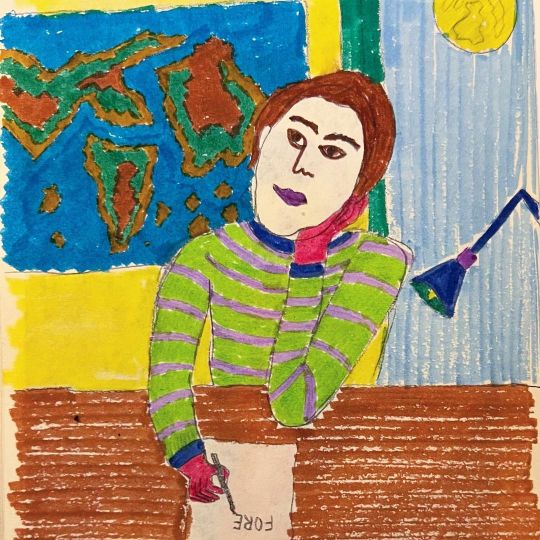
They hate my weekend routine but seriously guys this is where the magic begins. So let me cook it for you 💜 #rimalyma #sketching #map #saturdaynight #acrylicmarkers #independentartist #womenofillustration #illustrator #artistslife #athenians #everydaylife #nightcreator (at Athens, Greece) https://www.instagram.com/p/Cn_kq0Dqnud/?igshid=NGJjMDIxMWI=
#rimalyma#sketching#map#saturdaynight#acrylicmarkers#independentartist#womenofillustration#illustrator#artistslife#athenians#everydaylife#nightcreator
0 notes
Text
remember when that quote "It's rotten work. "Not to me. Not if it’s you" was going around tumblr from Anne Carson's translation An Oresteia and then there was another wave of scandalized "how DARE you romanticize the relationship between Orestes and Pylades! They're cousins!" like....they're from an ancient greek tragedy. they're all related. even achilles and patroclus were cousins according to hesiod. the greeks did not care.
#m#im sorry but if u want 10000% pure 'unproblematic' relationships....dont look at athenian tragedies#like for the record im against incest but uh#ancient greek heroes were just Like That
2K notes
·
View notes
Video
HOPLITAS-ATENIENSES-ATENAS-ARTE-PINTURA-HELADE-CASCOS-UNIFORME-EXPRESION-PINTOR-ERNEST DESCALS por Ernest Descals
Por Flickr:
HOPLITAS-ATENIENSES-ATENAS-ARTE-PINTURA-HELADE-CASCOS-UNIFORME-EXPRESION-PINTOR-ERNEST DESCALS- Pintar las expresiones humanas casi ocultas por el casco ateniense, hoplitas de la ciudad estado de ATENAS en la Gracia de la antigüedad, personajes de la historia sobre papel de 70 x 50 centímetros, cuadros del artista pintor Ernest Descals.
#ATENAS#ATENIENSES#HOPLITA#HOPLITAS#GRECIA#GREECE#HELENOS#HELADE#CIUDADANOS#SOLDADOS#EJERCITO#ARMY#CASCO#HELMET#EXPRESION#PLASTICA#SERVICIO#UNIFORME#ATHENS#ATHENIANS#ART#ARTE#ARTWORK#FINE ART#PINTURA#PINTURAS#CUADRO#CUADROS#QUADRES#PINTURES
0 notes
Text
my personal list of greek myth retellings that are actually good and do something interesting with the myth:
The King Must Die and The Bull from the Sea, Mary Renault
Cassandra: A Novel and Four Essays, Christa Wolf
The Penelopiad, Margaret Atwood
The Lost Books of the Odyssey, Zachary Mason
Here the World Entire, Anwen Kya Hayward
Weight: The Myth of Atlas and Heracles, Jeanette Winterson
Achilles, Elizabeth Cook
Memorial: An Excavation of the Iliad, Alice Oswald
Averno, Louise Glück
Autobiography of Red, Anne Carson
Antigonick, Anne Carson
Oresteia, Robert Icke
Antigone, Jean Anouilh
Eurydice, Sarah Ruhl
Girl on an Altar, Marina Carr
Los Reyes, Julio Cortázar
Hadestown, Anaïs Mitchell
O Brother Where Art Thou, Coen Brothers
honorable mention to Ursula K. Le Guin's Lavinia which doesn't count on a technicality
#you may make additions but i WILL judge you for them#mine#personal to read list at the moment includes: molora; hurricane diane; red doc; antigona gonzalez; home fire#these great athenians; ransom (malouf); an iliad (baricco); an iliad (o'hare/peterson)#for these purposes i exclude the *explicitly* ovidian but not the medusa and orpheus and eurydice works that clearly draw on ovid#recommendations
8K notes
·
View notes
Text

José Carlos Somoza, The Athenian Murders
1K notes
·
View notes
Text
Is there more terms like Achillean, Sapphic, Diamoric or Athenian??? I’m curious
451 notes
·
View notes
Text
2024 Athenian Calendar
Here we go again. It's December.
For those who don't know: since 2021 I've been making yearly calendars that slap most major Athenian festivals and days on our modern calendar to make keeping track of events easier.
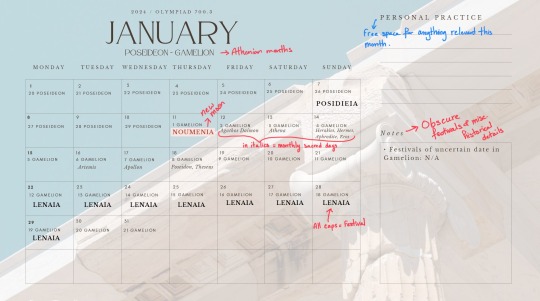
The calendar covers most Athenian festivals:
Those for which we know the exact dates are directly in the calendar grid in all-caps.
Those which we know existed but are too obscure to be probably dated are listed month by month in the "Notes" panel. (Gamelion has none, so this is marked as N/A)
The Noumenia/new moon is indicated in red all caps. If you celebrate Hekate's Deipnon, you can refer to it as a reminder.
Monthly sacred days are in italics.
The "Personal Practice" thing is for whatever you want.
The calendar comes in 2 formats, digital (full colour, like the screenshot above minus my scribbles) and printer-friendly (no image, only black text on white).
If you'd prefer to have a classic physical 26-page wall calendar, I made a version as a Canva template available so it can be customized to your needs and purchased directly from Canva. For clarity, I don't get a penny from any purchases made, you're only paying the platform for printing and shipping.
Download
Digital version (full colour)
Printer friendly version (B&W)
Template:
[Wall calendar Canva template]
362 notes
·
View notes
Text
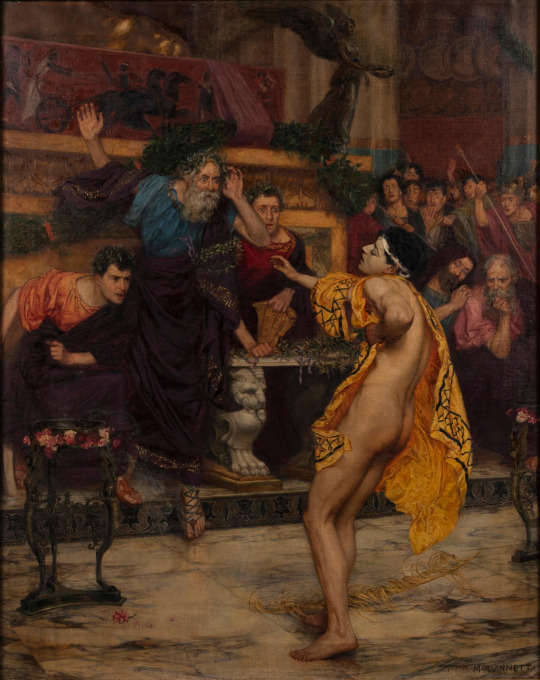
The Athenian Messenger Pheidippides Delivers News of the Victory at Marathon
by Frank Moss Bennett
#pheidippides#art#frank moss bennett#marathon#messenger#victory#battle of marathon#athens#athenian#history#ancient greece#ancient greek#greek#greece#persian#invasion#persia#europe#european#battle#war#classical antiquity#antiquity#ancient#run#runner#race#running
361 notes
·
View notes
Text

Here's a cheerful Gorgon to ward evil from your dashboard!🧿👅< With my sincere apologies to the ancient Greek artist now often called the Berlin Painter.
(painting from a late Archaic Athenian vase depicting a Gorgon chasing Perseus. München, Staatliche Antikensammlungen.)
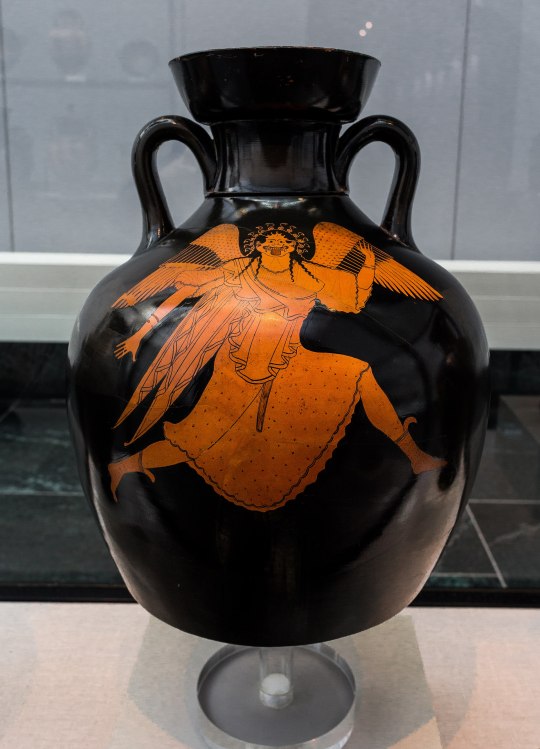
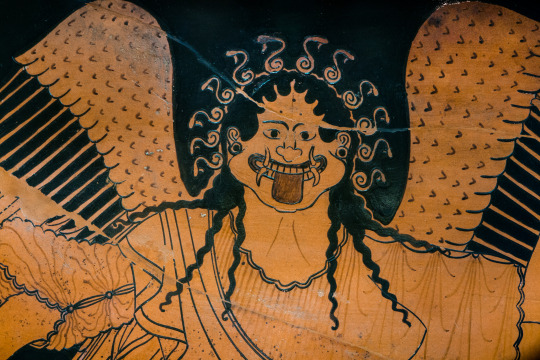
172 notes
·
View notes
